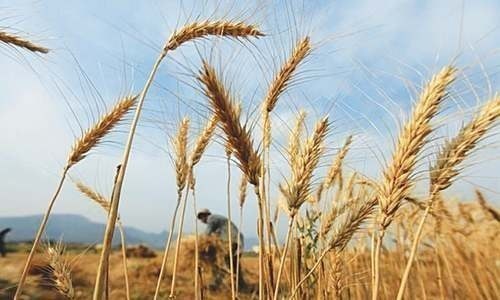
Ayaz Khan, a local farmer from Khyber Pakhtunkhwa, laments the extensive damage inflicted upon crops by recent bouts of rain and hail. Despite year-long toil, farmers like him find their livelihoods jeopardized by untimely weather phenomena.
The adverse effects of rain and hailstorms have shattered the agricultural backbone of many regions across the country. Pre-harvest, various crops stand ready for collection, yet rainfall and hail have wreaked havoc, rendering them unfit for use. Furthermore, the deluge has also disrupted vegetable production, driving prices skyward and burdening consumers with exorbitant rates.
Prof. Muhammad Akmal, former chairman of Agricultural University Peshawar, underscores the heightened vulnerability of Khyber Pakhtunkhwa to climate change. He attributes this susceptibility to the region's abundant glaciers, warning of imminent repercussions as glaciers melt, inundating downstream areas like Punjab and Sindh.
Pakistan ranks seventh globally in climate change impact, yet little has been done to fortify its agricultural sector, particularly in vulnerable regions like Khyber Pakhtunkhwa. With frequent floods and earthquakes, coupled with inadequate infrastructure, the populace grapples with food scarcity and economic strain.
Akmal emphasizes the need for proactive measures, urging both governmental intervention and public cooperation. He calls for policies safeguarding crops, as erratic weather patterns disrupt traditional farming cycles. Additionally, he stresses the urgency of community action to mitigate the far-reaching consequences of climate change on agriculture and food security.